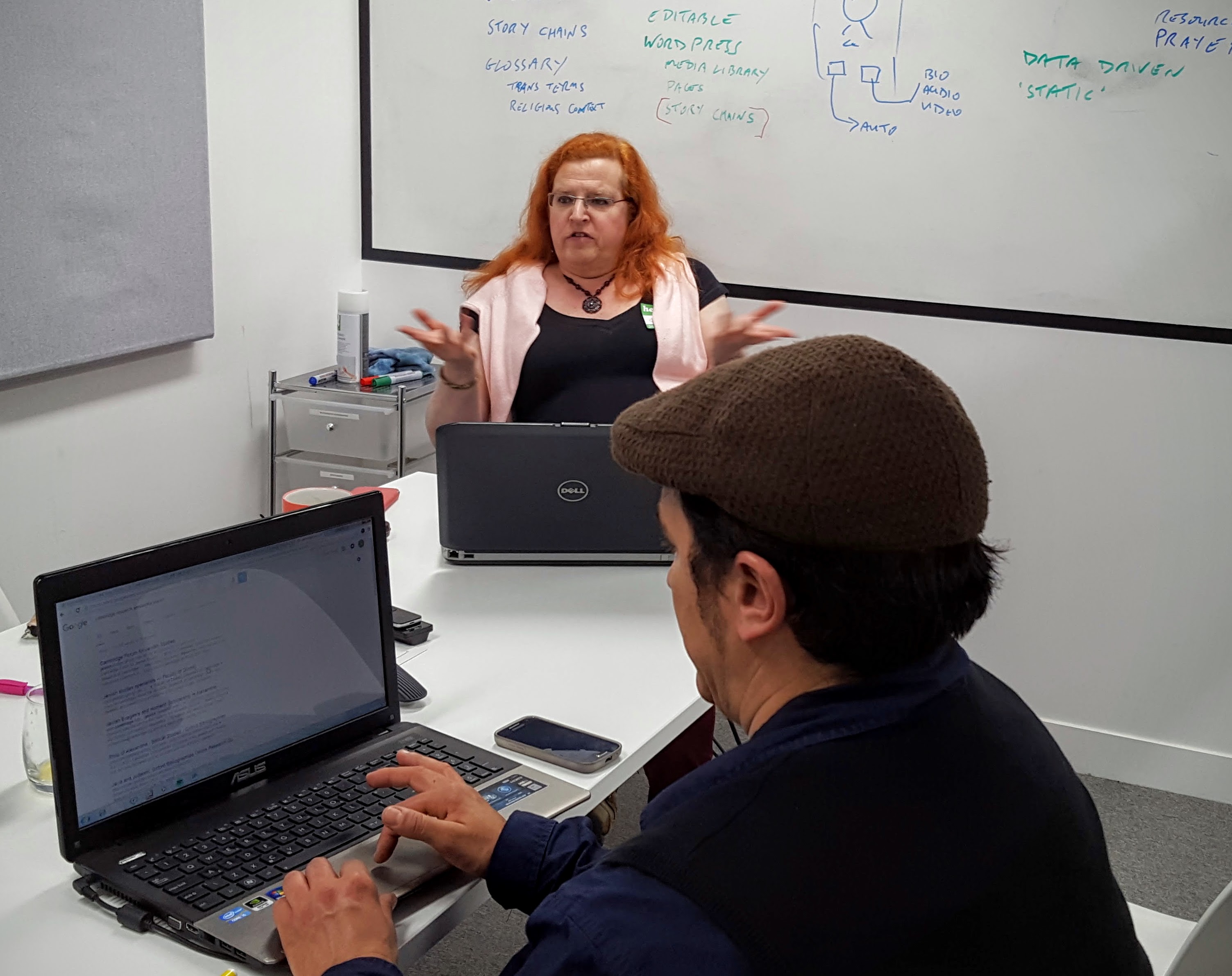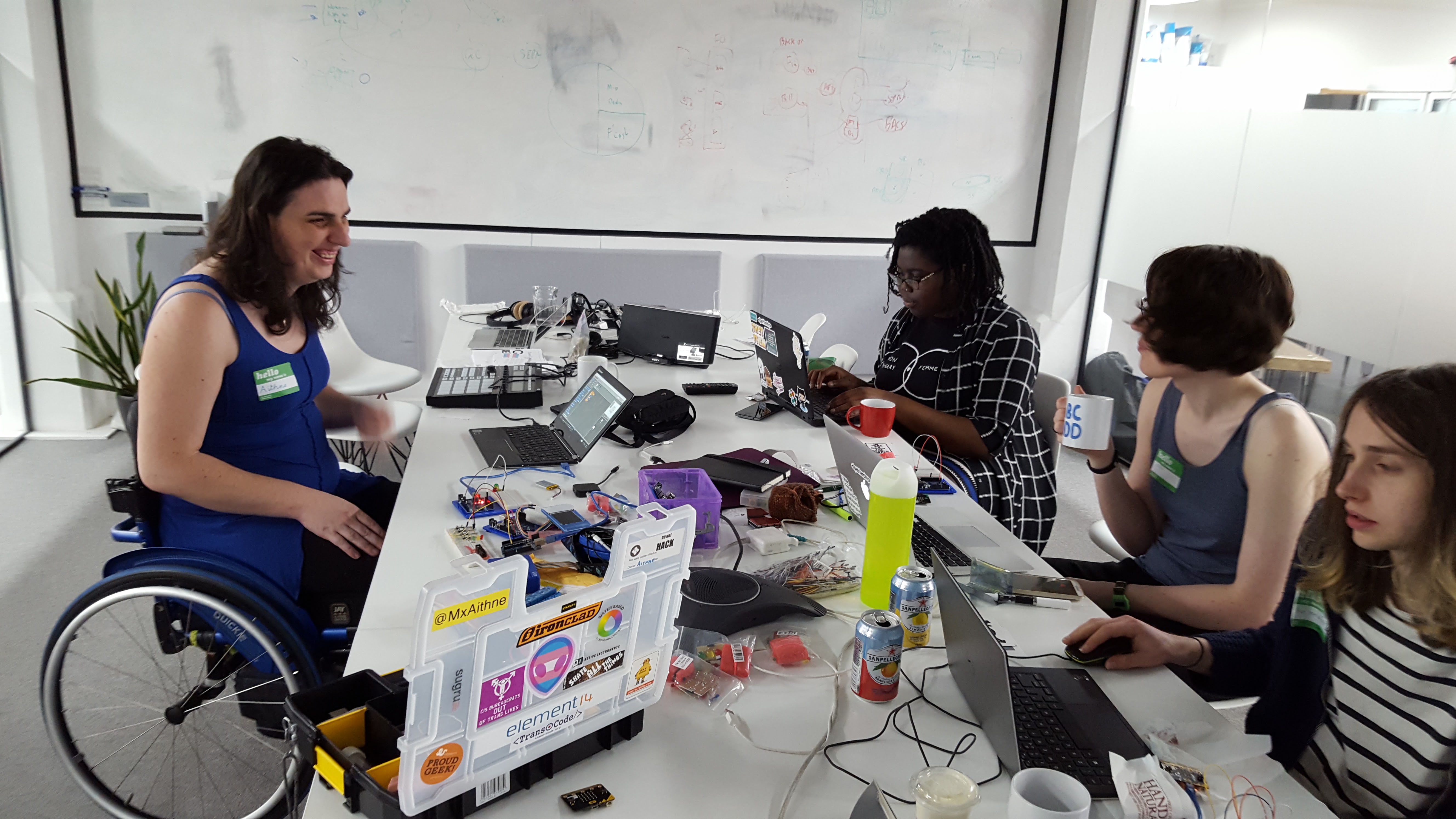
Trans and Non-Binary Coding Events
An interview with Naomi Ceder, Trans*Code event co-organiser
Naomi Ceder has been involved in the Python community for 16 years. Currently she serves on the board of directors of the Python Software Foundation.
The landing page of the Python Software Foundation shares the following statement:
“The mission of the Python Software Foundation is to promote, protect, and advance the Python programming language, and to support and facilitate the growth of a diverse and international community of Python programmers.”
This is an ethos that Naomi has instilled into the event she co-founded, Trans*Code.
(If you’re looking for more diverse speakers for your events, we’ve made a resource for that here.)
Trans and Non-Binary People Feel Uncomfortable in the Workplace
Before we delve any further into the workings of Trans*Code, it’s important to get an overview of the transgender and nonbinary community’s relationship with the workplace.
A 2014 study by the American Foundation for Suicide Prevention and The Williams Institute (part of the University of California school of law) revealed the following information:
- 50-59% of transgender and gender non-conforming adults experienced harassment at work.
Part of 2015 study conducted by the Scottish Trans Alliance discovered the following statistics for nonbinary people residing in the UK:
- Just 4% of respondents felt comfortable sharing their non-binary identity at work versus 52% who never felt comfortable.
-
People worried about that the following would happen if they were to share their non-binary identity at work:
–
90% worried that their identity would not be respected
– 88% worried that it would make their work identity more difficult
– 55% worried that it would impact on their career progression
The Inspiration Behind the Event

The previous statistics make for harrowing reading. Thankfully tech activists like Naomi (pictured above) saw an opportunity to create an event that would empower the trans and non-binary community.
“I worked in the UK for a couple of years and it was then that I decided that I wanted to bring something to the UK that had been done in the United States called Trans*H4CK.”
The Trans*H4CK initiative was started because, they saw “growing social and economic barriers,” that affected the trans community such as:
- Unemployment at twice the national rate (4x for transgender people of color).
- Incomes of less than $10,000 a year.
- Unprescendented homelessness.
- Overwhelming discrimination when accessing adequate health care, legal services and housing.
Naomi attended it:
“It was the first time that there’d been a hackathon devoted to transgender and nonbinary issues. I wanted to replicate that model in the UK, so in the Spring of 2015, we had our first event. I connected with a woman named Jessica Rose, who’s based in Birmingham, and we put together the first event.”
(On a similar note Jessica has shared one of her talks on her site called Imposter Syndrome & Individual Competence. It’s well worth a watch)
Why There Was a Need for the Event

“There aren’t many opportunities for trans and non-binary communities to come together and work constructively on the problems that face us. I saw this an opportunity to combine the spirit of a hack day with this particular, marginalized group.”
The first event was an immediate success because “it’s a rare opportunity for trans and non-binary people who are into technology to come together and work on technical things. It’s also refreshing to be the default group for a change, rather than an outsider group.”
The event not only brought together trans and non-binary people but their allies were welcome to join them. As Naomi puts it so well, “it helped them see things a little bit through our eyes.”
Start-ups Need to Up Their Diversity Game

“In general we don’t feel that the technical world is doing a wonderful job. I think on the other hand we do feel that there are opportunities that are perhaps better than in some other industries, but there’s still a long way to go in terms of truly feeling that there’s acceptance. I think there’s also a great deal of difference depending upon the type of company.”
Compared to larger companies small start-ups tend to have a harder time with issues like diversity because:
- They don’t have enough staff to reflect a diverse culture.
- They don’t usually have experience and expertise in HR best practices with regard to diversity.
Companies Need to Take Responsibility
Complacency is the enemy of progress. Naomi believes that companies need to take responsibility, they should, “educate themselves.”
“Many of us have spoken about diversity issues and even trends issues so there is material out there, but it takes an effort to realize that this issue actually does require a little bit of education and thought on the part of the company.”
Are You Guilty of Unconscious Bias?
According to Harvard University researcher Mahzarin Banaji in her article for the Harvard Business Review titled, “How (Un)ethical Are You?”,
“Most of us believe that we are ethical and unbiased. We imagine we’re good decision makers, able to objectively size up a job candidate or a venture deal and reach a fair and rational conclusion that’s in our, and our organisation’s, best interests. But more than two decades of research confirms that, in reality, most of us fall woefully short of our inflated self-perception.”
As Naomi puts it, “people who don’t have much experience being marginalized don’t fully understand how much more difficult it is if you are in a marginalized group.”
“Just the whole process of going to work and functioning becomes harder. It could be that you’re always seen as the expert on diversity issues instead of just being able to do your work. It could be that you always feel like you’re the one that’s the exception.”
Here are two excellent talks that Naomi has given to further explain how it feels to different.
It’s Our Duty to Make Things Better
Chatting to Naomi was enlightening. Naomi is a thoughtful, intelligent woman that explained to me why some organisations are lacking in the area of diversity. She summed up superbly why the onus is on us to make changes.
“It’s pretty clear that diverse teams benefit the company. It’s fair to ask, what is the company or that now-diverse team who has benefited, what are they doing to help make things better for the person who has taken this rather significant risk to join that team or company? That’s something that I think gets missed a lot.”